Australian products taking off in China in 2020
China is looking for the “next best thing” in Australia, and there are new opportunities for chilli-infused honey from Queensland, organic wine from South Australia, baby products in NSW and Victorian insect repellent to sell overseas in 2020.
Companies
Don't miss out on the headlines from Companies. Followed categories will be added to My News.
Exclusive: Chilli-infused honey, organic wine, natural baby products and insect repellent are some of the most popular merchandise Australian businesses will sell to China in 2020.
New research obtained by News Corp Australia from Reach China, a cross border trade organisation based in Australia, has found demand for Ugg boots and well-known vitamin brands had slowed down among its network of Daigou — the name for the Chinese based here who are part shopper and professional buyer, part trend-watcher, part influencer.
Reach China CEO Dr Mathew McDougall said Chinese consumers are instead looking “for next best thing” and showing interest in lesser known products, many of which come from regional Australia.
“Daigou take notice of what is trending in Australia and use this as a guide to what is popular nationally and let their Chinese network of friends, family and others know back in China,” he said.
“Daigou, like Instagram influencers come in many shapes and sizes. Established Daigou with large client bases run complete buying networks in China and can attract hundreds of thousands of followers on Weibo and WeChat.”
Daigou first entered Australian consciousness when demand for Australian baby formula saw supermarket shelves stripped by rapacious buyers who could privately export the formula to China to make big profits.
Chinese wanted baby formula they could trust after scandals involving contaminated domestic brands which saw six babies die and 300,000 infants affected.
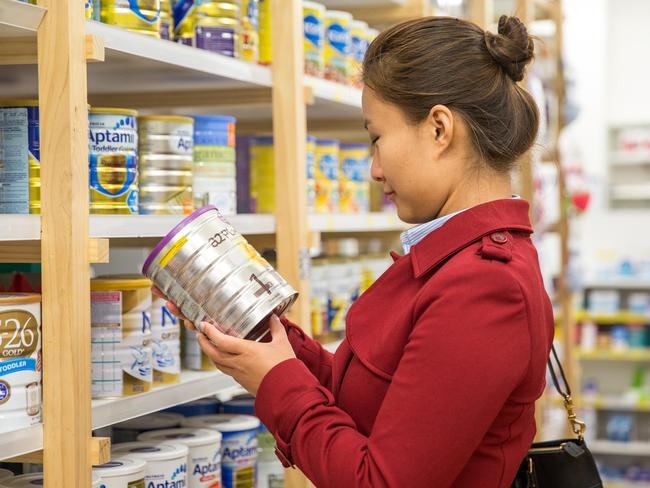
Dr McDougall said Chinese buyers were attracted to Australian products seen as safe and clean or “organic” and some of the biggest sellers this year are expected to be health and beauty products, honey, supplements for infants and the aged, and baby products.
The Department of Foreign Affairs and Trade (DFAT) states China is Australia’s largest export destination, receiving 30.6 per cent of our total exports.
Recent ABS and DFAT data also shows some of the top exports sent to China from Australia include vitamins, beauty products including organic soap, wine, wool, gold, coal, refined copper, barley and frozen beef.
The move comes as China’s President Xi Jinping made health a national political priority with the approval of the Healthy China 2030 plan.
To attract more Daigou to Australian products, Reach China is also rolling out a new hi-tech way of shopping after it entered a partnership with Australia's largest health food co-op, Go Vita.
Go Vita CEO Terry Hughes told News Corp he will be trialling Reach China’s new Touch, earn, Order (TLO) system in stores this year, which allows shoppers to come and see the product, possibly taste it, read about it and make a bulk order using a QR code.
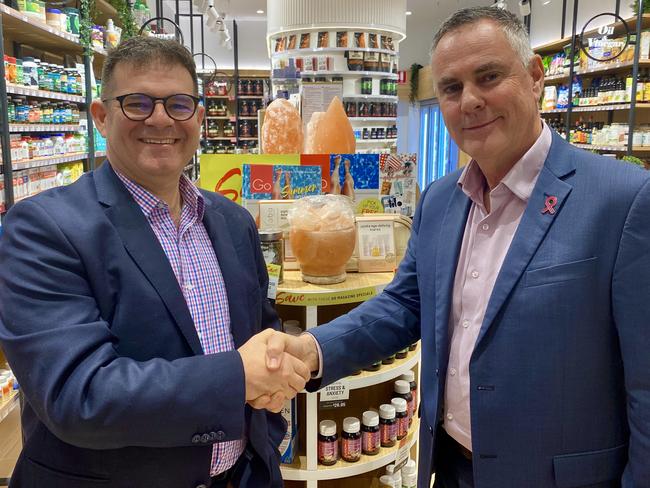
“The QR code is important from a retail perspective because once a purchase is made, the store owner can get them coming back using the same code that takes them to a WeChat site,” he said.
“It creates a loyal customer and they don’t have to touch one product on the shelf, it will come from our warehouse to them.”
These are some of Australia’s business owners who are also making new headway into China.
CHINA, HERE WE COME BABY
Sydney parents Julia and Mat Colbron started their baby product review website Tell Me Baby out of need for advice as they became parents to their first child Mila.
Since their website launch in 2016, they now have more than 35,000 reviews from Australian parents across hundreds of baby products.
After starting an eCommerce channel on their site in September last year, where parents can now buy products, they are launching their eCommerce store in China on Australia Day.
Mr Colbron told News Corp they are using Chinese social channels including WeChat, Little Red Book and Weibo with a combined following of about 30,000 followers to post articles about baby products and “amplify the Australian parent sentiment” around them.
“We are right in the middle of setting up our flagship store in China which is going on be on the Kaola cross-border e-commerce platform,” he said.
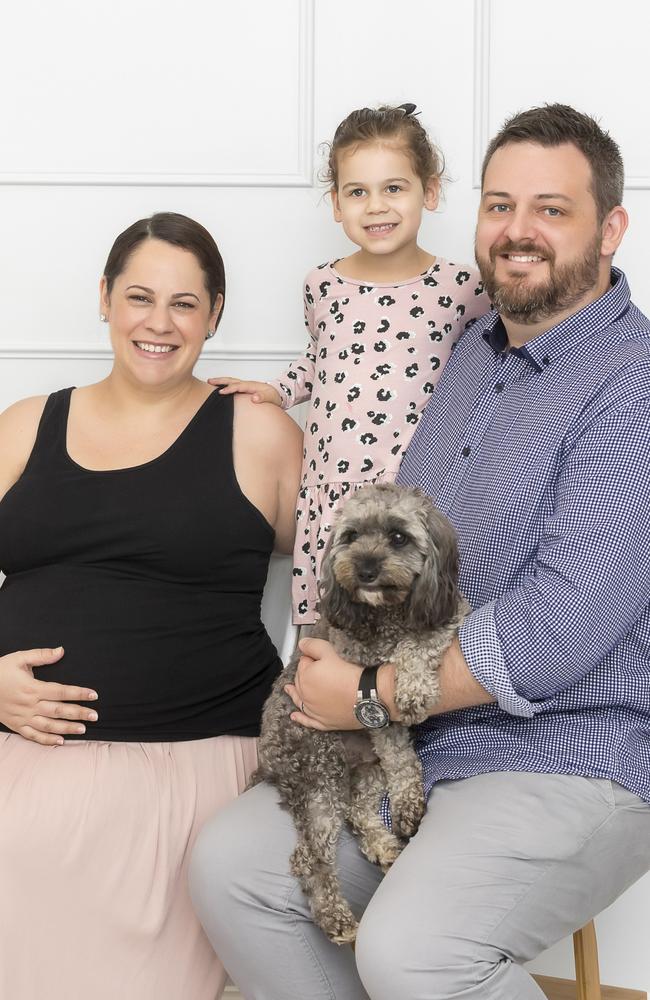
“We are taking 10 different Australian brands with us to launch in China, and we are using the social channels now to help drive people into the flagship store.”
Mr Colbron said they are also setting up a channel on Douyin, the China-based sister app to video sharing site TikTok.
“Those channels will direct everyone to the store … we’re showing them what the Australian parent is saying,” he said.
“Chinese parents, like Australian mums and dads, are looking for the best products but have even more information to deal with and issues with sourcing genuine products, so trust is a priority.”
The Colbrons are doing this after generating more than $6 million in capital with the help of Wealthspring's Leigh Zhang, who is a Chinese capital markets expert.
“All natural, all organic skin care line, health and safety products, that's where we see a big spike in traffic on our site, it’s the same for China,” he said.
‘CHILLI HONEY IS A HERO PRODUCT’
Beekeepers Natasha Roebig and husband Jason are selling honey to China after they began making it seven years ago to find a natural alternative for their daughter’s eczema.
The southeast Queensland-based couple at Jimboomba, who make their own ‘Bee All Natural’ honey-based skincare products, now export honey through a partnership with the ‘Maiden Australia’ brand.
Mrs Roebig, who is the state winner of the 2019 AgriFutures Rural Women's Award, told News Corp they had initial interest from Chinese tourists who would come to see and buy their products at their property.
“We started quite organically, we are a boutique artesian family brand,” she said.
“We have a lot of interest through word of mouth and we’ve won local product awards.”
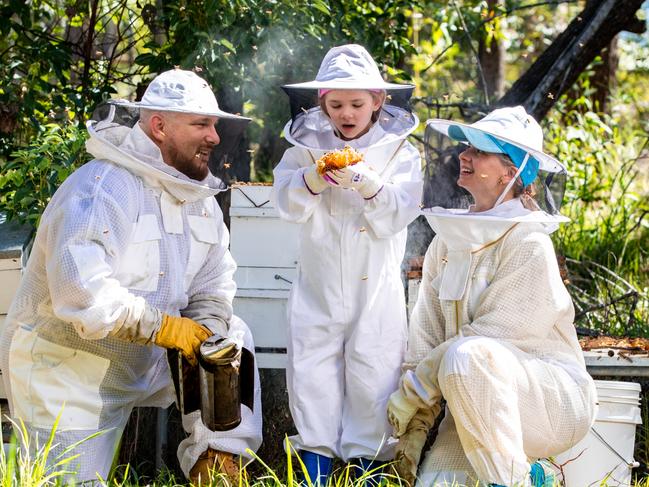
Maiden Australia brand owner Nathan Wong said they had trouble getting a permit to distribute in China, so they went to the Daigou market.
More than 18 months on, they are successfully selling raw, chilli-infused and creamed honey.
Austrade’s recent ‘Exporting Food and Beverage to China’ states our export of natural honey to China was worth $8.3 million.
“The chilli honey is a hero product with strong sales, the Chinese can cook with it, it’s beautiful in vegetables, seafood and meat,” he said.
“I think the packaging and Jason and Natasha’s story about her daughter is a big part of their success.”
MORE NEWS
Mick Fanning’s dog inspires new business move
Delivery food wars: What’s coming to Uber Eats, Menulog and Deliveroo
Back to School items costing Aussie parents $538 per child
The rise of Australia’s ‘Chillionaires’ in China
AUSSIE ICON BUSHMAN MAKES CHINA MOVE
Australia’s Bushman insect repellent just started moving into China late last year after being distributed to Hong Kong for the last eight years.
Bushman CEO Andrew Raper told News Corp it will be the first time they are using Daigou to sell their premium-priced product overseas since it was founded in 1990.
The famous repellent is produced by Juno Labs in Mordialloc, Victoria.
“The success we have had in Hong Kong has given us confidence it will succeed in China,” he said.
“We have had interest from Daigou at various stages. They are buying from pharmacies and onselling from other outlets too.”
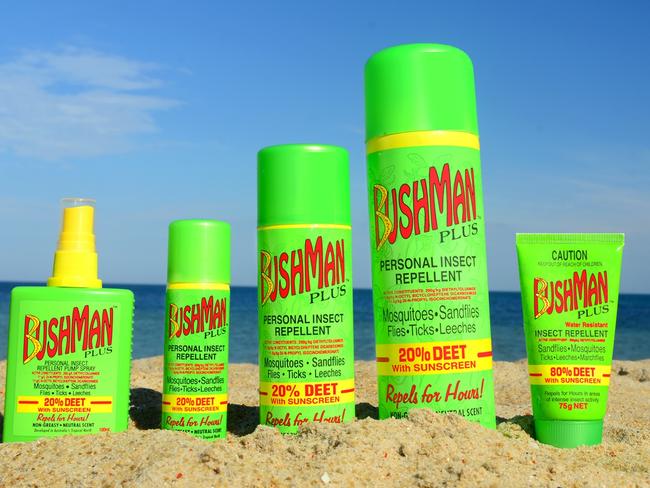
Mr Raper, who has travelled to China, said demand is based on their own mosquito problems in rural and urban populations.
“There are mosquitoes, it’s a very big market and it presents a very attractive opportunity for us,” he said.
Mr Raper said the move to China is part of a bigger plan to move into other global markets in the next 12-18 months. These include Thailand, Singapore, Denmark, Germany and the UK.
“I think our fragrance is highly regarded worldwide, and it is a quintessentially Australian product that appeals to them.”
Despite the move to China, Mr Raper said they will not be shifting their manufacturing to China.
“It will stay Australian, and it’s loved by all tourists.”
SA ORGANIC DROP GETS CHINESE APPROVAL
Richard Angove from Angove Family Winemakers in McLaren Vale, South Australia, told News Corp they started exporting organic wines to China last year after finding a local distributor.
“We’ve sold 60,000 bottles in 12 months,” he said.
As Joint Managing Director, Mr Angove said their product is being sold through the Liangdian Shop, an online organic product platform.
“We hope we can gain a small niche and get repeat sales,” he said.
“We recently won seven gold medals and one silver medal at the Grand International Organic Wine Awards in Germany, which gives us even more credibility.”
Mr Angove said they are certified organic by Australian standards and also have Chinese organic certification through a Chinese auditor comes out to Australia and assesses their vineyard.
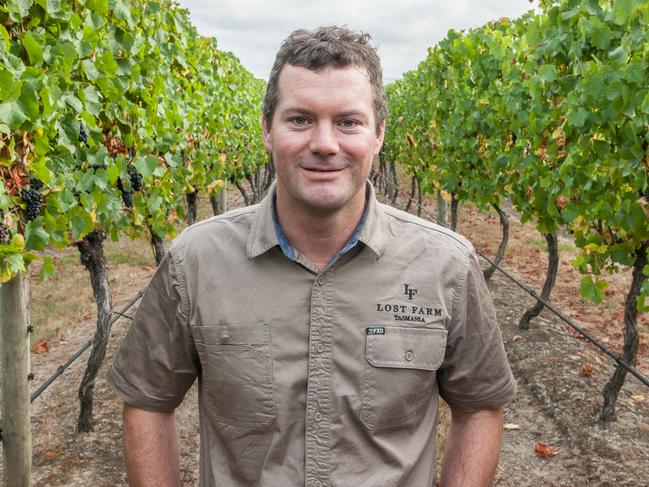
“We have to do it [the audit] every year, and it gives legitimacy to our organic claims,” he said.
After travelling to China to launch their product last year, Mr Angove said they hope to continue going there to grow the brand.
“We saw a younger generation of Chinese who are interested in providence, what they are drinking and where it has come from – with organic there's no artificial herbicides or pesticides … and our philosophy is all about sustainability,” he said.
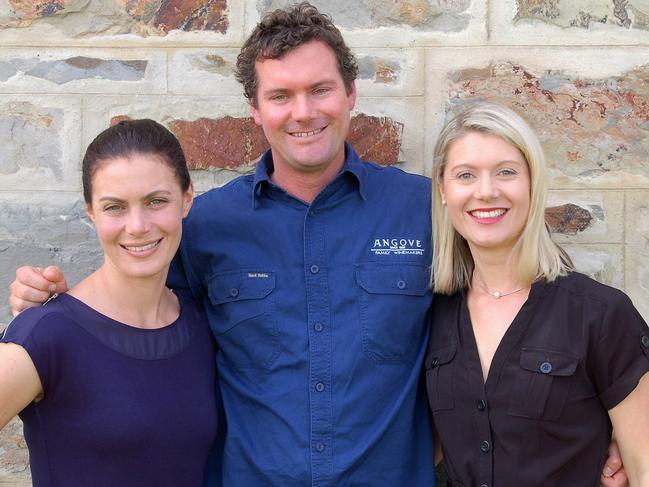
Australia is China’s second largest supplier of wine behind France, and 90 per cent of exports is red wine. Austrade states Australia’s red wine exports were worth $826.8 million in 2017, which is a 60.2 per cent increase from the previous year.
Mr Angove said Merlot is one of their biggest sellers because it's a “soft, silky and smooth” approachable wine that appeals to the Chinese palate. Their Shiraz and Sauvignon Blanc is also doing well.
